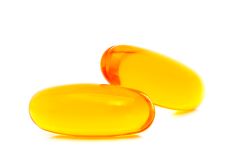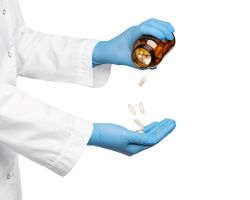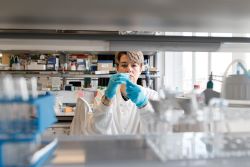
J. David Legan, PhD
Director of Science
David earned his Ph.D. in Food Technology from the University of Reading in the UK by modeling the ecology of mixed microbial populations, and then moved to Campden BRI in a variety of microbiological food safety research and client service roles. During that time, he was project lead for the Bacillus component of the UK’s pathogen modeling program. He moved again to Nabisco Research in New Jersey where he ran the corporate microbiology lab and developed a program of preservation technology development and microbial modeling. After the Kraft Foods acquisition, he moved to Chicago to work on Food Safety and Preservation research, and through modeling and validation studies:
- Optimized Oscar Mayer’s use of lactate and diacetate and their naturally cultured alternatives as Listeria-control agents in Ready to Eat meats
- Specified process conditions central to Oscar Mayer’s commercial launch of High Pressure Pasteurization of naturally cured RTE meats
David had responsibility for the Kraft cultures R&D group, developed a partnership to explore microwave sterilization leading to several patents, and led a program that developed an internal proprietary natural antimicrobial commercialized in several Kraft products. Technologies from his group supported approximately $4 billion in annual sales.
After years as a microbiology "client", he is now back in the "provider" role as Director of Science at Eurofins Microbiology Laboratories, Inc., by way of the Covance Food Solutions group based in Madison, WI, which he joined in 2016. In this role, he ensures appropriate method validation, explores new testing technologies, and fields multiple complicated food microbiology questions.
Products that his team has evaluated or developed and launched include:
- The 3M MDS platform in the Madison microbiology laboratory
- Flow cytometry for enumeration of probiotics
- Strain-level confirmation of probiotic identification using the polymerase chain reaction (PCR)
- Next-generation sequencing using the Oxford Nanopore Technologies GridION sequencing platform for microbial identification and microbiome analysis
Below are resources from David:
As global demand for animal protein continues to rise, producers, distributors, and suppliers face increasing pressure to meet complex veterinary drug compliance standards. This webinar offers a practical roadmap for navigating the regulatory landscape governing the export of animal protein, with a focus on FDA and USDA requirements, international certification processes, and emerging trade dynamics.
The FDA and USDA are seeking public input to define ultra-processed foods (UPFs), aiming to shape future labeling, regulation, and consumer awareness. Learn how this RFI could impact food policy and public health.
Grain trading, especially in commodities like soybeans, relies on accurate lab analysis to determine quality and compliance. But when discrepancies arise between a supplier and a buyer, these disagreements can stall deals and generate costly conflict. That’s where referee testing steps in. Click to read about this crucial process that maintains trust and transparency.
Discover how dietary supplement companies can proactively mitigate risk—from sourcing to packaging—to protect product integrity, brand reputation, and consumer trust.
With the overall market movement towards "better for you" foods, many companies have already started adding new or reformulated products to their portfolios. Click to read our blog about the market action being taken and strategies companies have deployed to appeal to the Make America Healthy Again movement.
Did you know the history of Eurofins Food Chemistry Testing, Inc. in Madison, Wisconsin dates back to 1929? Check out our infographic to learn more about the rich history of the laboratory.
Discover expert insights into navigating Out-of-Specification (OOS) results and CAPA investigations. Learn key steps and strategies our technical team uses to resolve unexpected analytical outcomes effectively.
Explore a real-world OOS case study where collaborative investigation revealed formulation challenges as the root cause. Learn how targeted troubleshooting helped a client improve product consistency and manufacturing protocols.
Learn how a lab resolved inconsistent OOS results in a vitamin chew by identifying a wax-related dissolution issue. Discover how method adjustments and tailored procedural notes improved accuracy for unique formulations.
Get key insights from the MAHA Commission’s second report, released September 9, outlining strategic steps for implementation and updates to its original findings.












